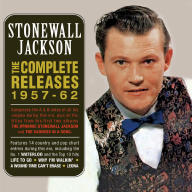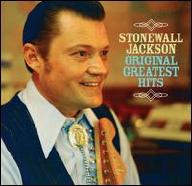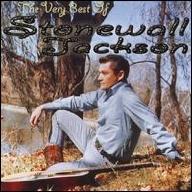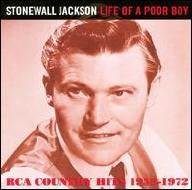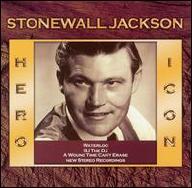Eventually Jackson hit the road with Tubb, who became a mentor to the young singer and songwriter. By early 1957, Jackson had signed a recording contract with Columbia and cut his first record, "Don't Be Angry." Jackson followed up with a cover of George Jones' "Life to Go," which peaked at number two in early 1959. The upbeat "Waterloo," with its mixture of novelty and melancholy, did even better, spending five weeks at the top of the country charts, hitting number four on the pop charts, and garnering Jackson some national television exposure. Through the early '60s, Jackson was a consistent hitmaker with such country standards as "Why I'm Walkin'" (number six, 1960), "A Wound Time Can't Erase" (number three, 1962), and "I Washed My Hands in Muddy Water" (number eight, 1965). Jackson's second number one hit, "B.J. the D.J.," arrived in early 1964.
During the second half of the '60s, he reached the Top 40 less often, scoring only one Top Ten hit: 1967's "Stamp Out Loneliness." His Columbia albums of this period contained ornate wordplay from the pens of well-established Nashville writers like Vic McAlpin; songs such as "Ship in a Bottle" and "Nevermore Quote the Raven" applied literary virtuosity to traditional country themes. By 1970, however, Jackson wasn't even hitting the Top 40. He bounced back briefly in 1971 with a cover of Lobo's "Me and You and a Dog Named Boo." In 1973, he had his last hit with "Herman Schwartz," which reached number 41. After that, Jackson continued to appear regularly on the Opry and to record occasionally, releasing albums like the inspirational Make Me Like a Child Again. He also re-recorded versions of his old hits, and he privately published his autobiography, From the Bottom Up, in 1991. Stonewall Jackson died in Nashville on December 4, 2021 due to vascular dementia; he was 89 years old. ~ Sandra Brennan & James Manheim, Rovi


